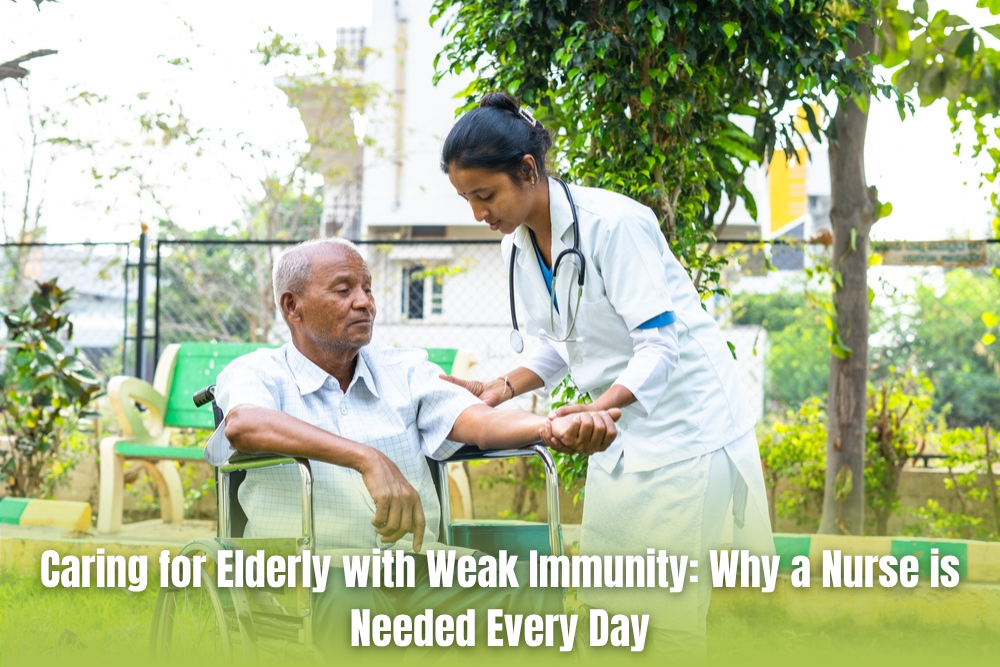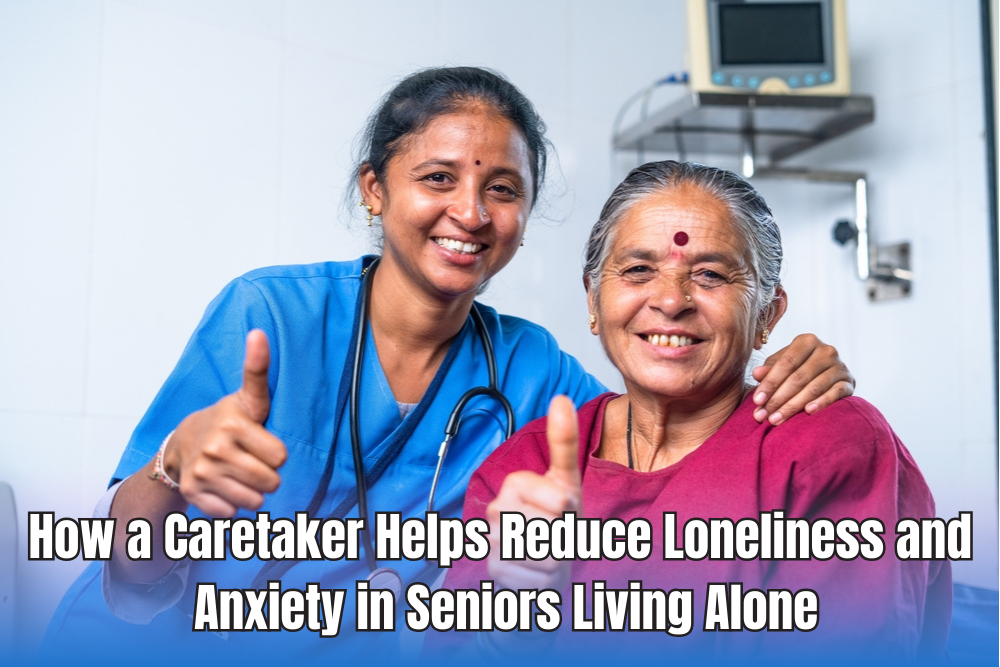As our parents or grandparents grow older, their immune system naturally becomes weaker. This means they are more vulnerable to infections, delayed healing, and complications from even minor illnesses. For families, this brings a constant worry—are they safe when we’re not around?
This article explains the risks of low immunity in elderly people, how a daily caregiver or nurse can help, and why having professional support at home can make a world of difference. If you’re concerned about your elderly parent’s health, this guide will help you understand when and why daily care becomes essential.
Why Do Seniors Have Weaker Immunity?
As the body ages, several changes lead to weaker immune defenses:
- Slower white blood cell response to infections
- Reduced ability to fight off bacteria and viruses
- Chronic conditions like diabetes, heart disease, or kidney issues weaken the body further
- Nutrient deficiencies and poor diet affect immune health
This is why seniors often catch the flu, infections, or even pneumonia more easily—and take longer to recover.
Common Health Risks Due to Weak Immunity
- Frequent Cough, Cold, or Fever
- Slow Wound Healing
- Urinary Tract Infections (UTIs)
- Skin Infections or Bedsores
- Complications from Minor Illnesses
Even a simple fever in a senior can become serious if not managed in time. This is where daily monitoring and early care matter the most.
How a Daily Nurse or Caregiver Helps
1. Regular Health Monitoring
Daily checks of temperature, blood pressure, oxygen levels, and other vitals help catch signs of infection early.
2. Timely Medication & Supplements
Many seniors forget to take their medicines or take the wrong dose. A caregiver ensures correct and timely medication, including immune-boosting supplements.
3. Nutritional Support
A healthy diet is key to immunity. Caregivers help plan and prepare nutritious meals, keep the elderly hydrated, and monitor food intake.
4. Hygiene & Cleanliness
Caregivers assist with personal hygiene, bathing, changing clothes, and maintaining a clean living space to prevent infections.
5. Wound Care & Bed Sore Prevention
Nurses manage minor wounds or cuts professionally and help bedridden patients change positions regularly to prevent bedsores.
6. Vaccination Reminders & Doctor Follow-Ups
A nurse or caretaker helps schedule regular health checkups, and reminds families about essential vaccines like flu or pneumonia shots.
Peace of Mind for Families
When a trained caregiver is present every day:
- You know your loved one is being monitored and cared for
- You don’t need to worry about emergencies or neglected symptoms
- Your parent feels less lonely and more supported
- You can focus on your job, family, or responsibilities without constant stress
Why Choose Shree Swami Samarth Patients Seva?
At Shree Swami Samarth Patients Seva (www.sssps.in), we provide trained nurses and caretakers who specialize in elderly care for those with weak immunity or chronic health issues.
Our caregivers are:
- Experienced in daily health monitoring
- Trained in hygiene and infection control
- Compassionate, respectful, and available for long-term care
We serve families across India, ensuring that your parents are never alone, even when you’re far away.
FAQs: Elderly Care for Weak Immunity
Q1: How do I know if my parent has weak immunity?
If they often fall sick, take long to recover, or catch infections easily, it’s likely their immunity is low.
Q2: Can a caregiver prevent infections at home?
Yes. By maintaining hygiene, helping with healthy meals, and monitoring early symptoms, a caregiver greatly reduces infection risk.
Q3: Should I hire a nurse or a regular caretaker?
If your parent needs help with medical care (like injections, wound care), hire a nurse. For daily assistance like hygiene and meals, a trained caretaker is suitable.
Q4: Is home care better than hospital for immunity-related conditions?
In many cases, yes. Home care reduces the risk of hospital-acquired infections and provides comfort.
Q5: How do I start care services with Shree Swami Samarth Patients Seva?
Visit www.sssps.in or contact us to discuss your needs. We’ll recommend the right caregiver for your parent.
Conclusion
Elderly parents with weak immunity need more than just love—they need daily, attentive care to stay safe and healthy. A professional nurse or caregiver is not just a helper, but a protector, companion, and watchful eye when you can’t be there.
Let Shree Swami Samarth Patients Seva be your trusted partner in ensuring your loved one gets the care they truly deserve—every day, right at home.



